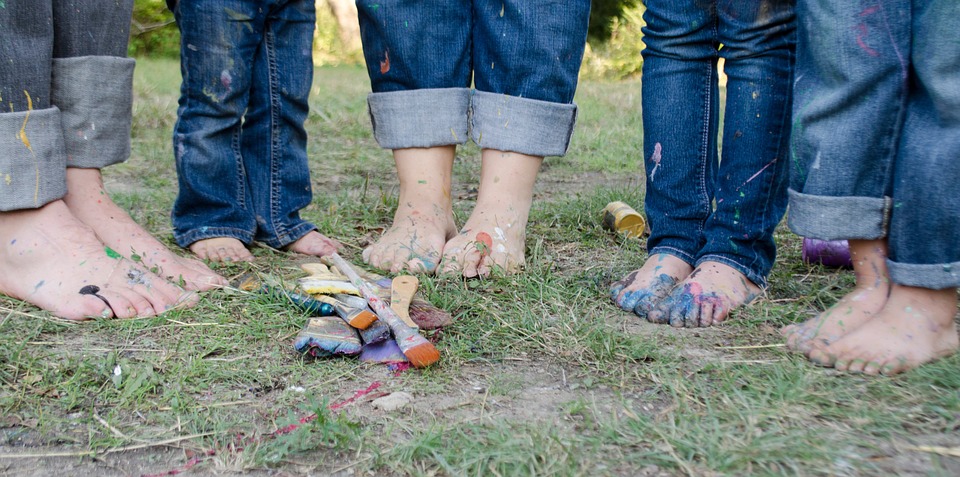“We all have family dysfunction. It’s why we’re successful, to fill that hole.” Eli Attie

My husband John and I kept a distance from our families of origin for years, even while one or both parents were alive. It wasn’t an ideal choice, but I didn’t think our marriage would survive otherwise, so I pushed for detachment. We’d leave family get-togethers and I’d exhaust him by scrutinizing how everyone acted. A family member filled me in later about bets they placed on how long our marriage would last. I didn’t have energy to fight John and confront that kind of judgment I suspected was happening.
By the time I heard the story, it was because of the irony of it – we were the only couple in the family still married to our original partner. Maybe I was right about having a better chance of staying together if we detached from family even though I didn’t understand why.
It wasn’t until I attended a daylong workshop for counselors to earn CEUs and do personal work that I heard about the Drama Triangle. I preferred a miracle, but instead I got a lesson. There are plenty of theories about family dynamics, but this one had our families’ names written all over it.
Understanding my role (and theirs) in both families, the one I grew up in and the one I married into, helped me grasp why I detached from them, and it’s helped me get my own life while loving the people in it even if from afar. I hope this explanation of the Drama Triangle helps you also – to identify what’s happening in your family, to identify your role, and to gain momentum toward changing it if necessary so you can get your own life.

The Drama Triangle
(persecutor, rescuer designated to the top two angles, victim at the bottom)
Dysfunction usually happens when we react instead of intentionally act. Unless we work at relating to each other as adult to adult, we typically react based on whatever role we’re stuck in from our families of origin. Acting as adults is our true role and the goal for when we leave behind the drama of the triangle.
In Psychology Today’s article “The Relationship Triangle,” the author tells how marriage partners run amuck around the triangle and how they trade off their parts although each one has a primary destructive role. The triangle can just as easily exist in a big family, a friendship, a school (I saw it happen at the elementary school where I taught), a small business, or a large corporation.
The Drama Triangle includes a persecutor, a rescuer, and a victim. I’m using the pronoun “he” to keep the portrayals easy to read.
The Persecutor says, “What’s your problem?” He accuses, attacks, and acts out because of his anger and frustration. Sometimes he’s simply pointing out to the family that there is a problem, one they don’t want to talk about, and then becomes the problem himself. The persecutor needs a victim to take out his emotions on and a rescuer to absorb more of his negativity.
The Rescuer says, “I’ll save you.” He controls by doing good works for the victim, which turns out okay as long as the victim follows the rescuer’s instructions and the rescuer doesn’t tire of enabling – doing for the victim what he can and should do for himself. The rescuer needs a victim to save, as well as a persecutor from whom to save the victim.
The Victim says, “Poor me.” He is anxious, hurt, and helpless. He needs a persecutor to keep piling on the pain. That way, a rescuer can continue protecting and taking care of him.
I say, “Get off.”
I recently read the article “The Three Faces of Victim – An Overview of the Drama Triangle” that stated no matter where you start on the triangle, you end up a victim. A friend pointed out how damaging it is to end up there when she said, “Victims never heal.”
No one gets better on the triangle. This explains why, at the counseling workshop, our lead counselor said, “Get off the triangle even though you’ll likely have to leave as a persecutor. People will condemn you for leaving – for being selfish, for not caring, and for not staying to help the victim. Leave anyway.”
I got off my family of origin’s triangle several times before I stayed off for good. The final time happened the evening a family member confronted me about dropping by my mom’s house to leave her a gift – a dragonfly necklace she had admired. He said, “Why’d you give her the necklace? What are you up to?”
He had a history of accusations, but that one was ridiculous enough that it gave me gumption to get off the triangle and stay off.

This image reminds me of how hard I tried to fit a square peg (me) into a round hole (my family). It reminds me how often I made my family my god and the Drama Triangle my life. I wanted off the triangle, to get my own life, and for God to shape it.

Getting off the triangle doesn’t have to mean estrangement from those who are still on it. Getting off could mean getting your own life while loving the people in it.
What shape are you in as far as your family role? Are you reacting to your role on the triangle or acting out your purpose?
In This Together,
Kim
On the side: I did a video the other day on this same topic. I showed the triangle upside down from how it should appear and I didn’t offer clarity about each role. I hope this blog post straightens out some of that.









Kim, this is great, and the triangle model makes so much sense!
May I reblog?
Of course, Andrew. Thanks for passing it along.
Do you mind tagging me when you do? I\’d appreciate it.
Um…what\’s \’tagging\’?
Hmmm, I guess you can\’t tag with a blog. I do it on FB. Maybe just send me the link to where you reblog it. Would that work? If not, don\’t worry about it. Just reblog.
Got it. It\’s reblogged on blessedpureofheart.wordpress.com
Reblogged this on blessedpureofheart.
Thank you!
From Facebook (Kim Henson) ~
Delilah Lewis, Mary Blackmon and 7 others
Debbie Johnson Loved this explanation! I had seen your video, so this was a good follow-up.
Love · Reply · 1 · June 30 at 8:55pm
Kim Henson Thanks so much, Debbie Johnson! <3 For both watching the video and reading & leaving a comment here. Love you!
Like · Reply · July 1 at 12:21am
Delilah Lewis Sure does love it. Kim Henson
Love · Reply · 1 · June 30 at 9:00pm
Kim Henson I sure do appreciate it, Delilah Lewis! <3 xoxox
Like · Reply · July 1 at 12:22am
Sybil Lee Gives me something to think about
Love · Reply · 1 · June 30 at 9:40pm
Kim Henson It made me think too, Sybil Lee 🙂 … which is part of why I love sharing this stuff. I learned about the triangle years ago and needed a refresher course, so I researched and found some interesting articles and takes on the different roles. Thanks for your comment.
Like · Reply · July 1 at 12:26am
Connie Rogers Makes you think about the triangle
Love · Reply · 2 · July 1 at 8:23am
Kim Henson It was good to write it down, Connie Rogers. It's been a while since I've studied it, so I recognized some things about family I had not noticed before.
Like · Reply · 1 · July 4 at 11:02pm
Connie Rogers Kim Henson it made sense
Like · Reply · 1 · July 4 at 11:02pm
Kim Henson Connie Rogers, thanks. It made a lot of sense to me too and helped me sort out some stuff with my family.
Like · Reply · July 4 at 11:17pm
I\’m always intrigued by your family dynamics, Kim–the unstated as well as the stated. I have a \”bucket list\” of women I\’d like to meet in person, and you are definitely on it. 🙂 My family – which has its own dysfunctions, of course – is spread out among different states, so our infrequent family gatherings are short enough to allow everyone to keep their \”junk\” in their suitcases. That works for me.
I\’d also love to meet in person, Natine. You never know … it could happen. 🙂
The problem with our family, there\’s no suitcase big enough, so we finally had to deal with what was in front of us. Believe me, I tried keeping it tucked away. Thanks for your funny, as well as thought-provoking comment.
There\’s only one way to fit a square peg in a round hole w/o damage: let the peg\’s diagonal equal the round hole\’s diameter. It\’s a little wobbly, but it\’s safest for all concerned!
These are key, Carlene … \”w/o damage\” and \”safest for all concerned.\” Thanks for your comment. It\’s interesting.